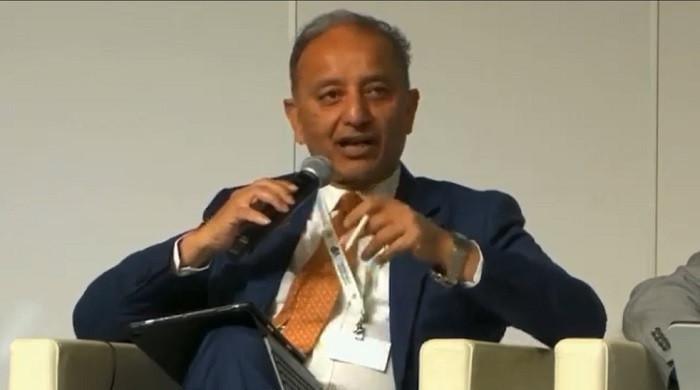Geneva: Federal Minister for Climate Change and Environmental Coordination Dr. On Thursday, Musadik Malik called for a stronger international collaboration to help develop countries switching to a green economy and spoke at a high -level climate conference in Geneva.
The event was organized by the United Nations Capital Development Fund (UNCDF) and took place with the conference for parties (COP) to Basel, Rotterdam and Stockholm (BRS) Conventions in Geneva.
When he spoke at a ministerial panel discussion, Dr. Malik that global green standards must be inclusive and fair instead of serving as barriers to poor nations.
“Green development standards should not be a burden, but an opportunity for developing countries,” he said, adding, “Global standards should be for everyone, not just wealthy nations.”
“I think the biggest obstacle I see is that the world’s developing countries are not visible,” he said in his opening notes.
“But I think when I hear this debate, what is not visible to me is the imperatives in developing countries,” he said in the same breath.
“There is no doubt that there is an economic disease burden for the people, especially poor people living in development economies.
He highlighted the financial challenges facing countries such as Pakistan, noting that its 240 million population has only $ 350 million in private portfolios – too little to finance green initiatives alone.
“Without sufficient resources, technology transfer and research support, a green economy remains out of reach to develop nations,” he added.
Dr. Malik urged the international community to secure justice in climate policies and warned that environmental goals cannot be achieved without including developing countries.
“Development of nations must be active participants in the global economy, not left behind on the margins,” he said.
He called for bold act and concluded, “the world must make brave decisions for a shared green future.
Practical barriers must be removed through resource mobilization, not rhetoric.
The summit continues to discuss strategies for fair climate action in the midst of growing pressure to meet global sustainability goals.
Meetings with Key Partner
On the sidelines at the conference, Dr. Malik with Dr. Abdullah bin Abdulaziz, Environment Minister and Climate Change in Qatar.
Dr. Abdulaziz expressed a desire to strengthen the bilateral cooperation and coordination of environmental issues in environmental areas, climate change, wildlife protection and pure energy in mutually advantageous ways.
Dr. Malik, while valuing Qatar’s transformative actions for a greener economy, discussed opportunities to take advantage of Qatar’s expertise and technology in petrochemicals and recycling.
Opportunities in carbon trading/offsets and the development of a regional carbon market were also discussed.
The two ministers confirmed the commitment to elaborate on the cooperation on these domains. They also decided to explore more ways to improve collaboration by exploring common initiatives, bilateral and other multilateral forums.
Dr. Malik also participated in a discussion with Ciobanu Dordea, director of the circular economy of the Europe Commission.
During the meeting, Dr. Malik the mutually advantageous economic partnership with the European Union.
He emphasized that the perspectives of developing countries should be of greater importance in the global environmental frames.
The Minister emphasized Pakistan’s efforts on circular financial targets and sustainable development.
He identified a number of opportunities for green cluster development that both Pakistan and European countries/companies can collaborate.
Although Dordea Valued Pakistan’s commitment, several opportunities to improve cooperation on various aspects related to the environment, waste management and circular economy suggested.
The two also discussed different ideas to increase economic cooperation between Pakistan and the EU Member States’ private sector in this regard.



